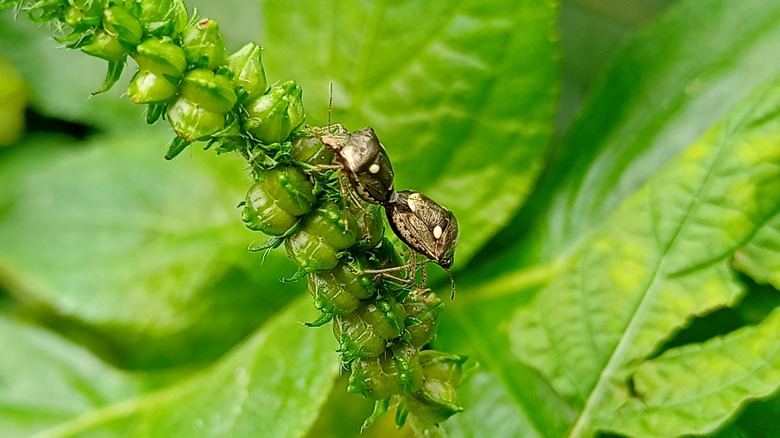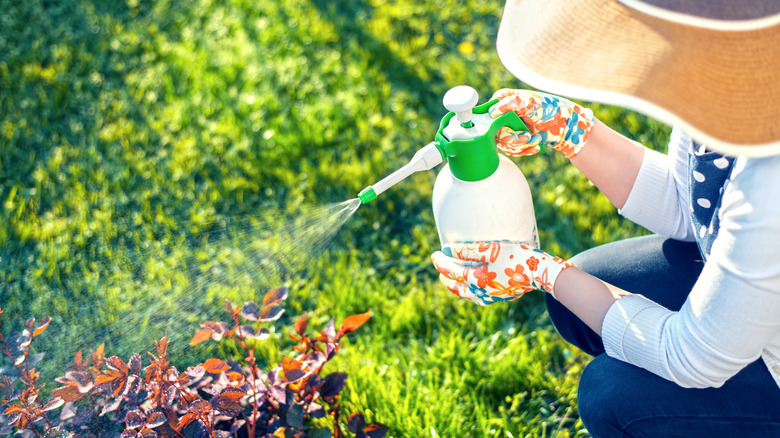Think Twice Before Banishing This Pest From Your Garden. Here's Why
Spined soldier bugs, often referred to as stink bugs, may seem like pests due to their pungent odor and occasional intrusion into the home. However, in the realm of gardening, they play a vital role in maintaining ecological balance and supporting plant health. These bugs are beneficial predators that contribute to natural pest control, making them valuable assets for gardeners. One of the primary benefits of stink bugs in the garden is their voracious appetite for pests. They prey on a variety of insect pests, including caterpillars, aphids, beetles, and larvae. By feeding on these pests, spined soldier bugs help to reduce these populations, thus minimizing damage to your prized garden plants. This natural form of pest control can also significantly decrease your reliance on chemical insecticides, promoting a healthier and more sustainable garden environment.
Additionally, spined soldier bugs are particularly adept at targeting pest species that can wreak havoc on common garden crops. Their predatory behavior helps to prevent infestations and limit the spread of diseases transmitted by insects. As a result, your plants are better able to thrive without the constant threat of pest damage, leading to higher yields of your fruits and veggies. Furthermore, spined soldier bugs are resilient and adaptable creatures, capable of thriving in diverse environments. Their presence in the garden indicates a balanced ecosystem where natural predators and prey coexist harmoniously. Therefore, by fostering a habitat that supports beneficial insects like spined soldier bugs, you can create a self-sustaining ecosystem that requires minimal intervention to maintain.
How to attract stink bugs to your garden
Attracting beneficial stink bugs to your garden can be an effective strategy for natural pest control while minimizing the need for harmful chemicals. One way to encourage their presence is by creating a diverse and hospitable habitat that meets their basic needs. Providing a variety of flowering plants, herbs, and other vegetation offers a food source for adult stink bugs, while also attracting the insects that they prey upon. Certain plants such as cabbage, dogwood, cucumbers, and sunflowers are known to attract stink bugs with their nectar or pollen. Including these plants in your garden not only provides sustenance for adult stink bugs but also serves as a magnet for other beneficial insects that contribute to a balanced ecosystem.
In addition to food sources, shelter is essential for attracting and retaining stink bugs in your garden. Dense vegetation, mulch, and plant debris offer hiding places and protection from predators and adverse weather conditions. Creating undisturbed areas within your garden encourages stink bugs to establish themselves and reproduce, ensuring a sustainable population over time.
Finally, you may encounter stink bugs making their way into your home in the cooler months as they seek shelter for winter. Rather than killing them, catching and releasing them in a sheltered place near your garden will help to preserve their population and encourage them to return in the spring. So it's a good idea to resist the urge to squish them upon finding them inside!
Gardening practices that may harm stink bugs
While certain gardening practices are essential for maintaining plant health, some common methods can inadvertently harm beneficial stink bugs and disrupt their role in natural pest control. One such practice is the indiscriminate use of chemical pesticides. These chemicals not only kill off targeted pests but also harm beneficial insects like stink bugs, disrupting the ecological balance in your garden. Instead of relying on chemical pesticides, it's better if you can adopt alternative pest management strategies that will minimize harm to beneficial insects in your garden like stink bugs.
Integrated Pest Management techniques involve using a combination of cultural, biological, and mechanical controls to manage pest populations while minimizing the environmental impact. This approach includes practices such as crop rotation, companion planting, and the use of insecticidal soaps or neem oil, which target pests while sparing beneficial insects. Relying on any number of these methods can help to manage unwanted pests while still attracting those who will naturally protect your garden crops.
Another common gardening practice that can inadvertently harm stink bugs is excessive tilling or disturbance of the soil. Stink bugs overwinter in garden debris and leaf litter, so messing with these habitats can disrupt their life cycle and reduce their population. Instead of extensive tilling, you can adopt no-till or reduced-till methods to preserve stink bug habitats. Mulching with organic materials such as straw or leaves provides insulation for overwintering stink bugs while also conserving soil moisture and suppressing weed growth.


